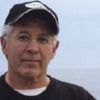David Hoffman

David Hoffman
Prolific journalist and author of non-fiction who is best known for his book The Untold Story of the Cold War Arms Race and its Dangerous Legacy. The book, published in 2010, earned him the Pulitzer Prize for General Non-Fiction.
NationalityAmerican
ProfessionNon-Fiction Author
Date of Birth5 June 1953
CityPalo Alto, CA
CountryUnited States of America
built case purely weapon
No confession, no prints, no murder weapon and no eyewitnesses. It was purely a case built on motive.
bulk lunch people sell snacks store work
The store will take some of the bulk of work from the lunch people because we will sell some snacks as well.
frightened looking sarah straight
Sarah Kolb was looking straight ahead, looking frightened and not participating in any way.
bring catch computer evidence graphics information lurking pictures problem programs solve theory time visualize
Computer graphics programs enabled us to visualize these surfaces, but we couldn't bring them back into the mathematical fold. I think the information about how to solve this problem was lurking in the pictures all the time, but we just had to think about it for a long time and have the theory catch up with the evidence we had.
help move national onto president race vice
The vice president is going to help move this race onto the national stage.
coming help move national onto president race stage vice
The vice president coming to Everett will help move the race onto the national stage where it belongs.
former honor naval president vice
As a former naval captain, having the vice president out is a big honor for Doug.
owned people serve
As Doug says, the people are not owned by anyone. When Doug is elected, he will serve the people.
action actual against arisen city client conflict council dated determined informing interest letter opinion potential prepare pursue questions received request took until
As city attorney, my client is the city of Monticello. The actual conflict of interest would not have arisen until the city determined to pursue action against Mr. Donaldson. Once I disclosed the potential conflict in my memorandum dated Dec. 13, the only other action I took was at the instruction of the City Council to prepare the request for an opinion from the Municipal League. Once I received Mr. Rodgers letter informing me of his disagreement with the way I framed my questions I forwarded his letter to the Municipal League.
anxious chief instead lots outside sitting tourists waiting walk
Instead of sitting in his office, he wanted to walk, so we would walk outside the court. There would be lots of tourists outside waiting to get into the court, anxious to see the action, and we would walk right by, with them not recognizing him, ... That was very much the way the chief was -- very unassuming, very straightforward about the way he went about his work. He was a very genuine, Midwestern man.
fact people school small smart talented
I like the fact that it's a small school with very talented people and a lot of smart kids.
approach call
I may take that approach and call Mr. Gregory.
five means reached
I don't read anything into it. They were out five hours. What does that mean? It means they haven't reached a verdict.
general gotten human known quite sarah year
I'm disappointed. Quite frankly, I've known Sarah for a year now and it's gotten a little personal. ... She's a human I like and I see her quite differently from the general picture.